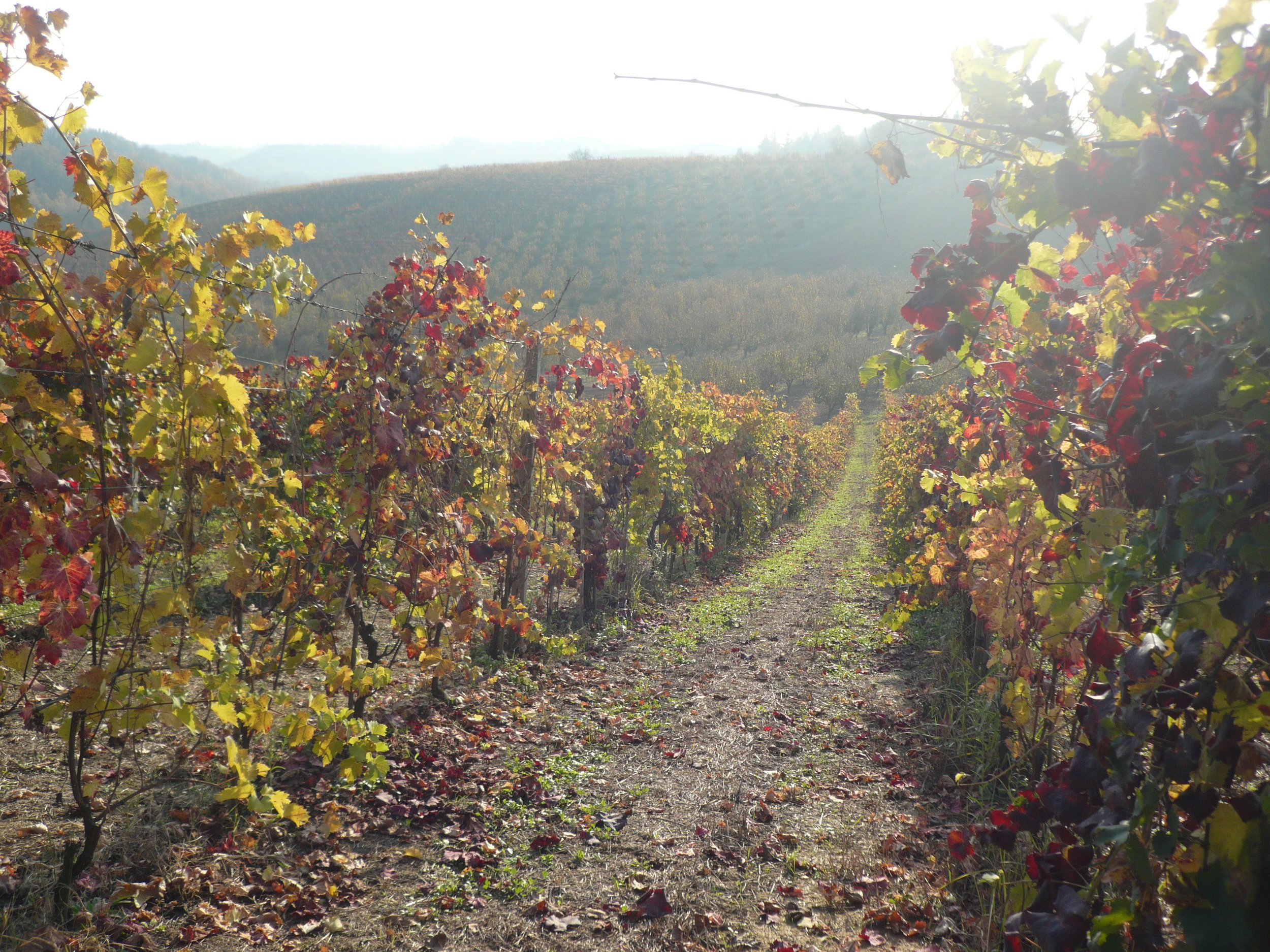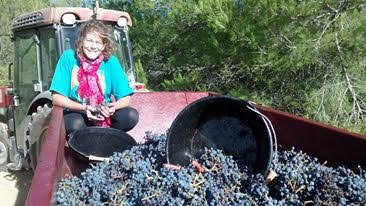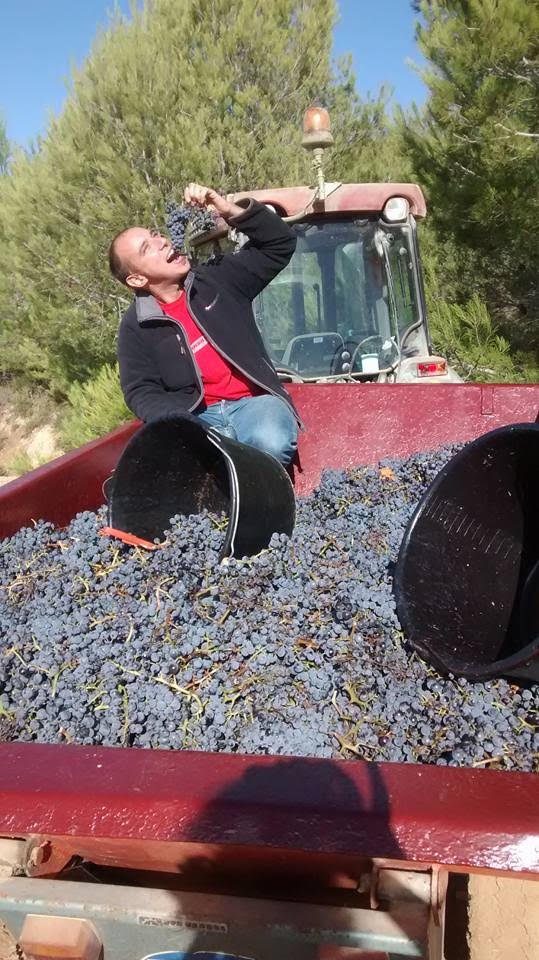
Domaine La Grangette
Castelnau de Guers, Languedoc, France




Pronounced “peek-pool de pee-nay,” Picpoul de Pinet is a designation or cru which may be used within the Languedoc appellation for white wines made exclusively from Piquepoul blanc from six communes: Pinet, Mèze, Florensac, Castelnau-de-Guers, Montagnac and Pomérols. South of Montpellier not far from the border with Spain.
Little known fun fact: Picpoul de Pinet, along with Claudette Blanche, are the primary varietals used in the manufacture of Noilly Prat, the well-known vermouth.
Little known fun fact #2: Both the blanc and noir versions of Piquepoul are permitted blending grapes for the production of Châteauneuf-du-Pape.
Christelle & Mathieu Caron are located between the Mediterranean Sea and the Cevennes region, along the Bassin de Thau.The domaine is situated on the edge of the route from Castelnau de Guers to Pinet, five kilometres from the sea, along a road sided by old pine trees which lead to the estate of La Grangette. The buildings of the Domaine are grouped around the house, typical in style of a Languedoc mas or farmhouse, sheltered from the north winds by tall, densely planted pines.
The Domaine stretches over 60 hectares which includes 10 hectares of pine forests. The terroir originates from old lakes and seas and is composed of hard and soft limestone. Of the 50 cultivable hectares, 40 are actually planted with vines, of which 10 are new plantings. The vineyards are divided equally between a zone of deep alluvial soils and the other of hillside and garrigue classified as terroir A.O.C. Picpoul de Pinet. The remaining 10 hectares are planted to cereal crops. The domaine practices organic agriculture, implementing techniques to regenerate the soil. They utilize ground cover in between every other row to decompress the soil after harvest. They dig in the cuttings after pruning in winter and then mechanically clean and rotate the soil at the end of July.
Our Selections
Grangette Picpoul de Pinet Blanc Poule de Pic 2023
From a 10 hectare plot of Picpoul grapes. 15 year old vines grow on clay/limestone soils and yield 30 hectoliters per hectare. Fermented in stainless steel for one week followed by aging 4-5 months in stainless steel tanks before being bottled.
Light-to-medium-bodied with hints of green apple, citrus and flowers. Picpoul means “stings the lip,” referring to the grape's naturally high acidity. This is an ideal accompaniment to oysters, fresh shrimp, bacalao and any fried fruits.
Piquepoul Noir Cocoriko IGP Cotes de Thau 2023
According to the estimable “Wine Grapes” tome, there were only 73 ha. of Piquepoul Noir vines planted in Southern France in 2008. And while it “is a permitted variety in Chateauneuf-du-Pape and Cotes du Rhone, it is generally a very minor component in blends….” We think this is a shame as this light and bright monovarietal bottling from Grangette has developed a sold fan base. This is a remarkably fresh, lithe and lively red wine with bright notes of Morello cherry, strawberry compote, white and black pepper, and a surprisingly complex hint of black tea. The palate is delicate, fruity and eminently drinkable, especially chilled. If you’re a fan of cru Beaujolais, this unique red is a must try.
From a 2.4ha vineyard of Piquepoul Noir planted to clay/limestone soils. The average age of the vines are 17 years old in their organically farmed vineyards. Light pneumatic pressing followed by a 15 day maceration/fermentation in stainless steel tanks. The wine was then racked and aged an additional 4-5 months in stainless steel.


